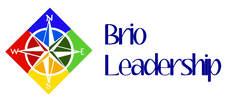 Do your employees experience Happy Mondays or do they dread the beginning of the workweek? Work can be challenging, fulfilling, and mostly fun, if organizational leaders have created a vibrant company culture. A vibrant culture is created when leaders identify a purpose higher than just making money and connect their team members’ values to the work they do. A toxic or defensive culture is created when you treat people with disrespect, tolerate negative behaviors, act distrustfully and/or hold people to extremely high standards without giving them the resources to attain them. As I think back on my work career, there have been times when I dreaded and times when I was excited to go to work on Monday mornings. My best work experiences have always been at companies where I felt appreciated, stimulated, held accountable to high standards of performance while given the resources to achieve them and where I felt like we were doing something to make the world a better place. Do you have a toxic company culture? Here are five signs to look for along with remedies for each situation:
Remedies:
Remedies:
Remedies:
Remedies:
0 Comments
Leave a Reply. |
From the desk of
|
Our services |
Our Company |



 RSS Feed
RSS Feed

